WhatsApp Broadcast vs Group: Best choice for business communications
Delve into the intricacies of WhatsApp Broadcasts and Groups to choose the perfect communication tool for your business.
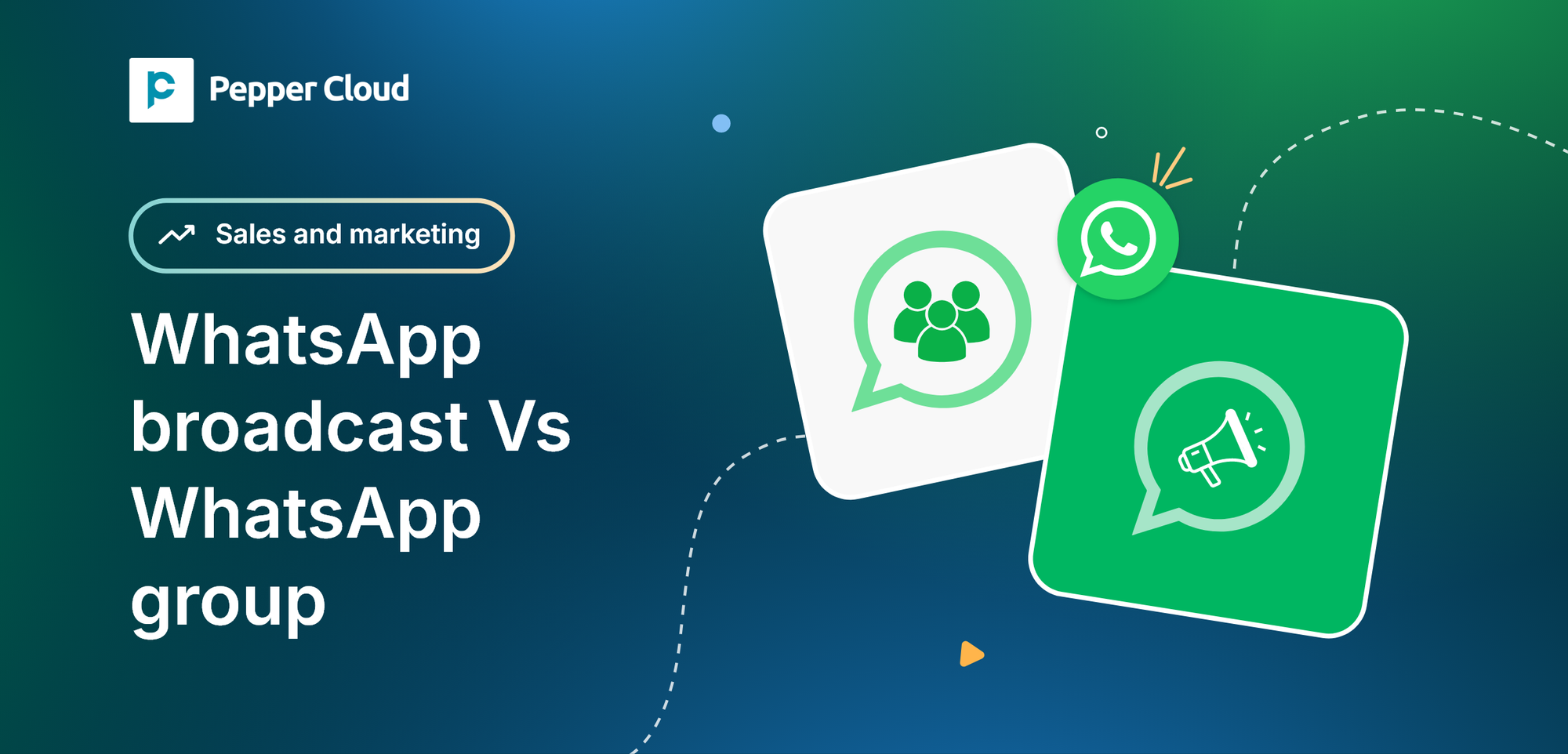
Imagine this: You are running a boutique brimming with the latest fashion finds. You want to announce your exclusive holiday sale. You long for a way to reach your loyal customers directly, spark their excitement about the sale, and generate some buzz among their friends.
How to achieve this goal?
With WhatsApp Business Solutions, your digital confidante!
WhatsApp Business Solutions
Tailored for growing businesses, WhatsApp Business Solutions are of two types: WhatsApp Business App and WhatsApp API.
- WhatsApp Business app: The free version, the WhatsApp Business app, comes with features such as quick replies, labels, and product catalogs, making it well-suited for small businesses. Enhancing the efficiency of the WhatsApp Business app is possible by integrating it with the CRM system through the WhatsApp Business web channel.
- WhatsApp Business API: This variant of WhatsApp is specifically designed for larger businesses, providing advanced automation and seamless integrations. Notably, this version lacks a native interface and requires integration with external software such as CRM.
Read our blog to know which WhatsApp business solution is suitable for your business.
Both WhatsApp solutions provide essential features for precise and targeted communication strategies. These features include WhatsApp Groups and WhatsApp Broadcasts, each serving distinct purposes in facilitating effective communication.
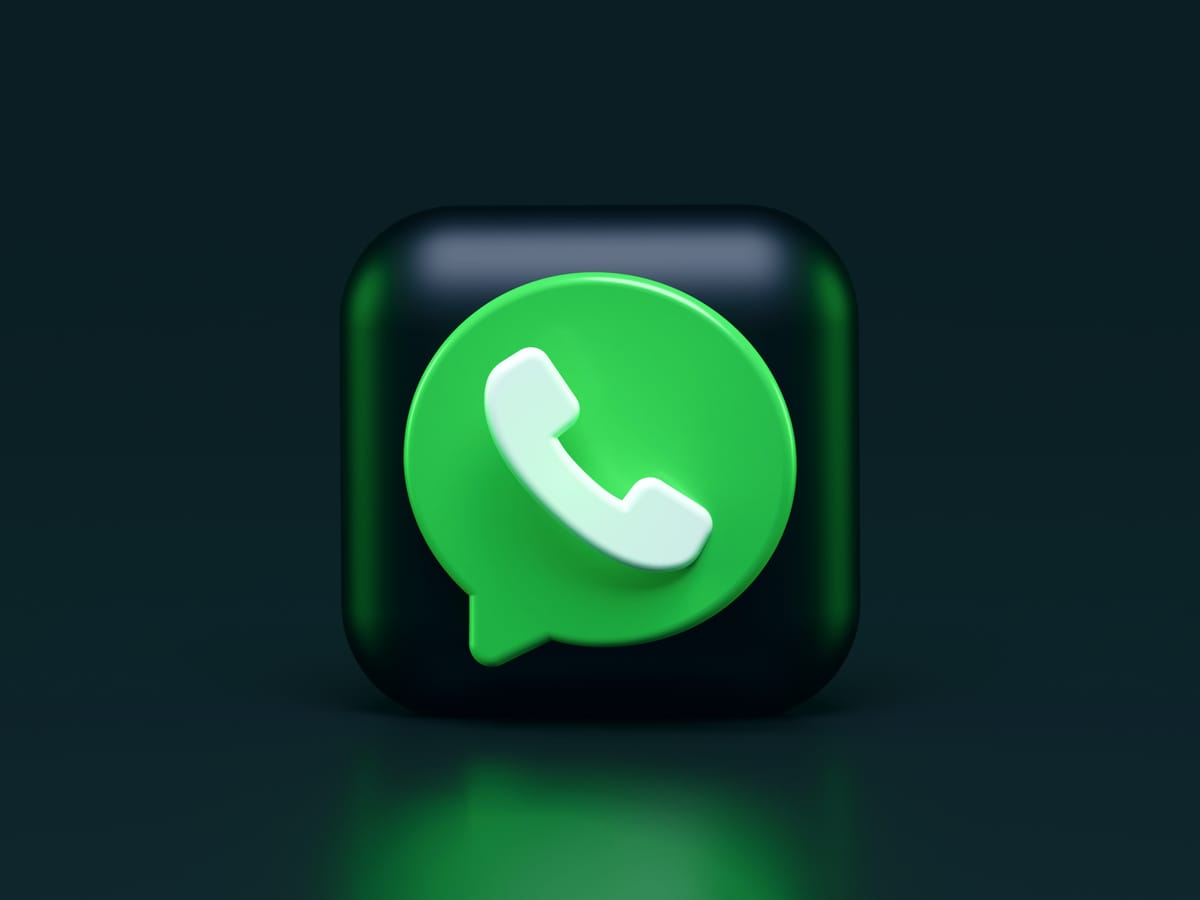
What is WhatsApp broadcast?
The WhatsApp broadcast feature serves as a one-way communication tool, allowing businesses like yours to send individual private messages to each contact simultaneously. It essentially allows you to communicate with multiple contacts at once, much like having a conversation with several friends without their knowledge of each other. For growing businesses, this feature is highly beneficial when you want to share product news and updates or would like to send announcements to a group of individuals.
Notably, the WhatsApp broadcast feature is accessible through both the WhatsApp Business app and WhatsApp API, although there are some notable differences between the two.
1. WhatsApp broadcast on WhatsApp Business app
For small businesses, the WhatsApp Business app is suitable due to the lower volume of messages sent. In this edition, you have the flexibility to select up to 256 contacts per broadcast list.
The contacts need to be saved to the address list and chosen for the broadcast list manually. Additionally, the contacts must save your number on their devices to receive your broadcast.
On the contrary, if you are an enterprise dealing with a substantial volume of messages, it is advisable to explore the use of WhatsApp API.
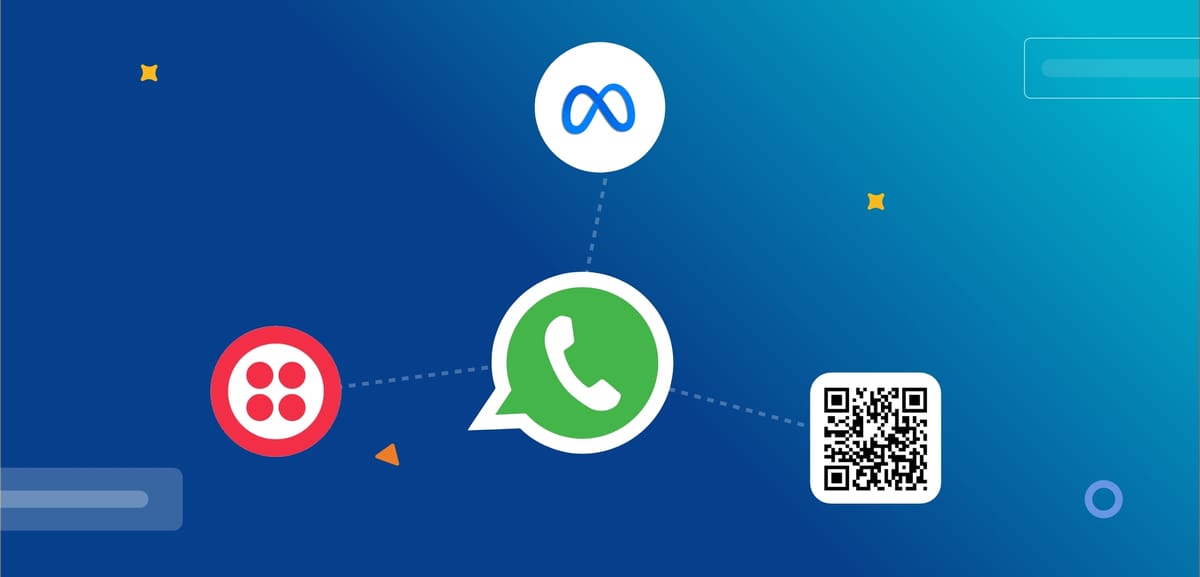
2. WhatsApp broadcast on WhatsApp API
Designed specifically for growing businesses, WhatsApp API surpasses a few limitations of the WhatsApp Business app. For example, to send a broadcast through WhatsApp API, the receivers need not save the number on their devices. Additionally, WhatsApp API allows you to verify your business, thereby increasing the authenticity of your brand.
However, in WhatsApp API, you can send out only the message templates that Meta has pre-approved.
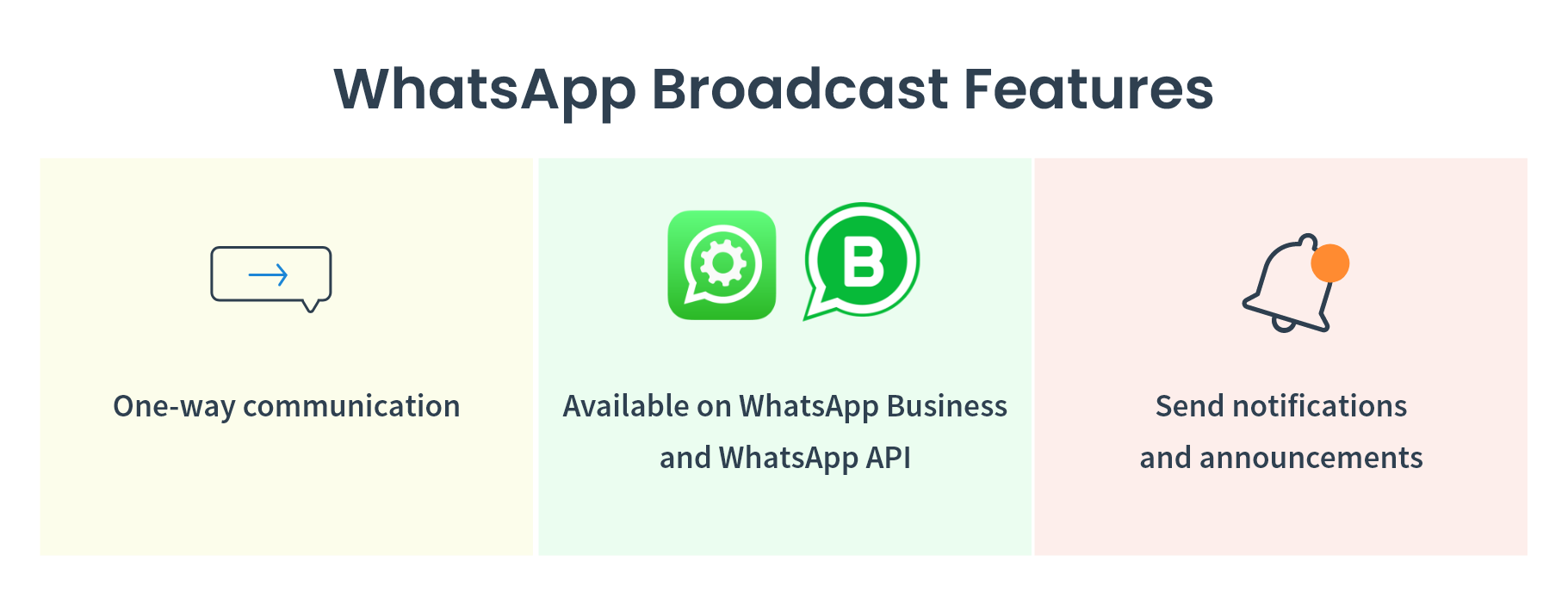
What is WhatsApp group?
WhatsApp group is a two-way communication feature that allows you to converse with multiple people at the same time in a shared space. In other words, it is similar to a virtual chat room where when you send a message, everyone can see it and reply to it. This feature proves ideal when all group members wish to engage in the conversation collectively. Furthermore, each group member can see other group members’ details and reply to their messages.
Here are a few prominent features of WhatsApp groups:
- This feature is only available on the WhatsApp Business app
- You can add up to 1024 members to the WhatsApp group
- It acts as a many-to-many communication channel
- Members can have group calls through WhatsApp group
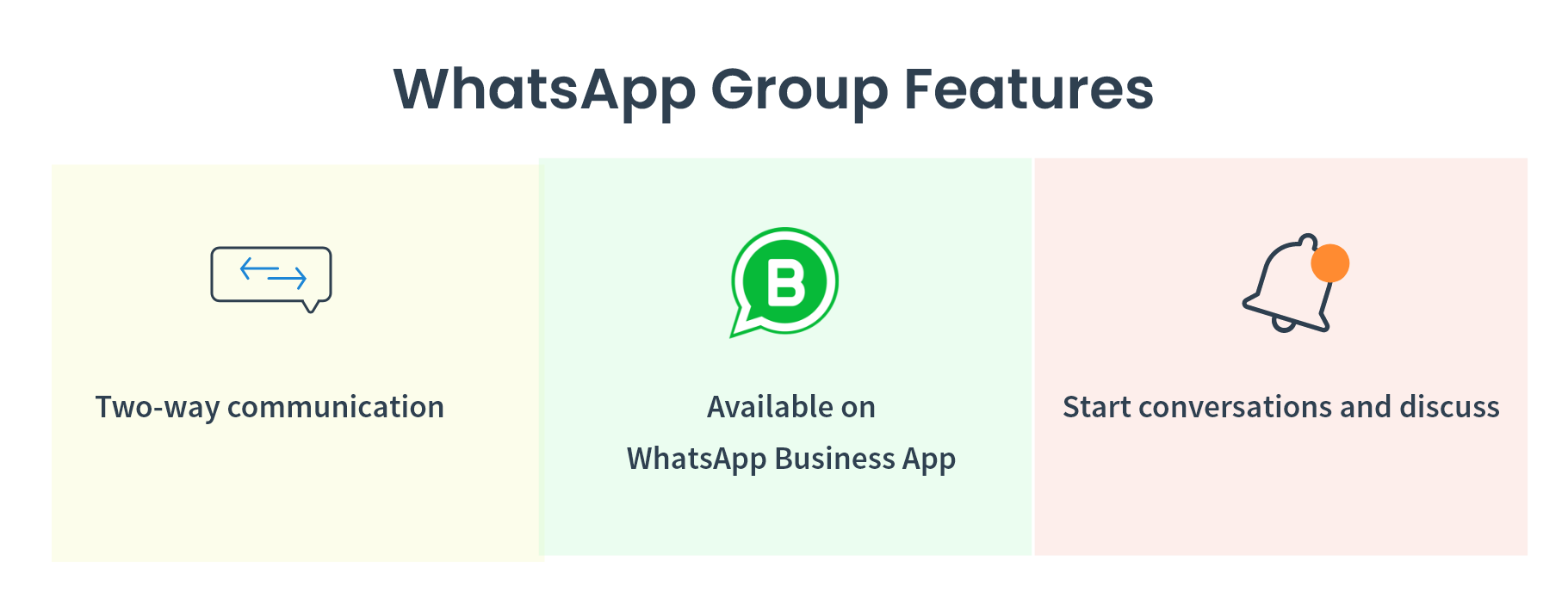
Difference between WhatsApp group and broadcast
You have got the message, the audience, and the platform. But now comes the crucial choice: broadcast or group chat? Both tools offer powerful communication, but they wield their magic differently. Let's dive deep and understand the difference between WhatsApp groups and broadcasts.
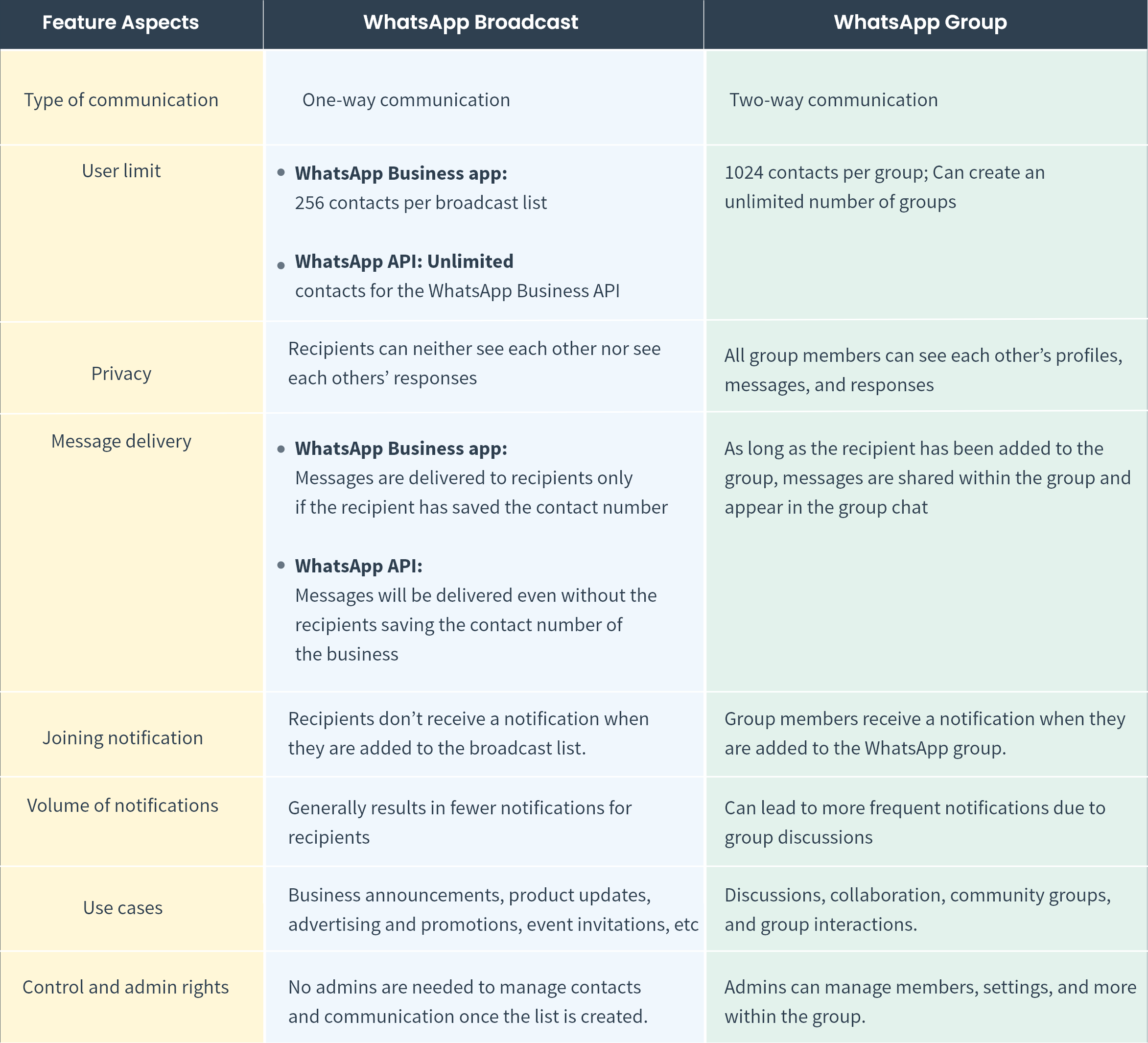
WhatsApp broadcast vs WhatsApp group - How to choose the best?
Choosing the right communication tool can feel like a cryptic riddle in the world of WhatsApp. The question of which feature of the WhatsApp business account needs to be chosen, "Broadcast" or "Group", hangs heavy. However, each option comes with its distinct features and advantages. If your goal is to broadcast individual messages to a large audience seamlessly, the broadcast option is the ideal choice. Conversely, if you seek interactive conversations with a collective audience, the WhatsApp Group is the most suitable.
We would suggest you use the WhatsApp broadcast feature when you want to announce new products or features, send personalised birthday greetings or discount codes, or share updates or company news. On the other hand, use WhatsApp groups if you are hosting Q&A sessions, live product demos, facilitating brainstorming sessions, gathering feedback, or building a loyal community for your brand.
However, always remember:
- Know your audience: Tailor your approach to your audience’s preferences and engagement styles.
- Respect privacy: Only use broadcasts for opted-in contacts and avoid spamming groups.
- Track your progress: Monitor engagement metrics to see what resonates and what needs tweaking.
So, ditch the confusion and embrace the power of choice!
Pepper Cloud - A WhatsApp CRM
Pepper Cloud, an innovative WhatsApp CRM, stands out as a comprehensive solution tailored for growing businesses. Offering a robust suite of features, Pepper Cloud seamlessly integrates with WhatsApp, providing a powerful platform to streamline customer relationship management.
Beyond providing essential WhatsApp features such as auto lead capture, rich media messages, product catalogs, and WhatsApp automation, Pepper Cloud CRM also includes both WhatsApp broadcast and WhatsApp group functionalities, simplifying marketing and sales efforts on the platform. This versatile CRM empowers businesses to capitalise on personalised interactions, efficiently manage customer data, and fully exploit the potential of WhatsApp for business purposes. The user-friendly features cater to the distinctive needs of dynamic enterprises, making Pepper Cloud a strategic and wise choice for those aiming to elevate sales performance and overall business growth.
Would you like to leverage WhatsApp CRM for your business growth? Talk to our friendly customer care executives and get a personalised growth plan.
Frequently asked questions (FAQs)
1. What is the advantage of WhatsApp broadcast?
Utilising WhatsApp Broadcasts allows you to send messages to a large number of customers while preserving their privacy. Each recipient receives the message individually, creating a personalised experience even when addressing a substantial audience.
2. What are the disadvantages of WhatsApp broadcast?
WhatsApp Broadcasts come with certain constraints, notably the cap of 256 contacts per broadcast list. While this limitation might not pose challenges for smaller target audiences, managing larger audiences can become cumbersome. Adding contacts to multiple lists can be problematic, potentially leading to duplicate entries. To address this issue, a viable solution is to explore the paid WhatsApp Business API, offering a more scalable and efficient approach for handling larger contact lists.
3. How does engagement differ between WhatsApp Broadcast and WhatsApp Group?
Within a WhatsApp Group, every member can engage in discussions and view messages from other members. In contrast, a Broadcast restricts interactions solely to the sender and individual recipients, where recipients can respond only through private messages to the sender.
4. Which one is better for personalised communication: WhatsApp Broadcast or WhatsApp Group?
WhatsApp Broadcast excels in personalised communication, sending messages individually to provide a more tailored and intimate feel. On the other hand, Groups are ideal for facilitating discussions among their members.
5. Can the same person be added to both a WhatsApp Broadcast and a WhatsApp Group?
Certainly! An individual can be added to a broadcast list and also be a member of a group. The two features are not dependent on each other.
6. Is it possible for individuals to know if they have been removed from a WhatsApp group or a broadcast list?
In the case of a WhatsApp Group, individuals will be aware of their removal as they will no longer be able to send or receive messages within that group. Contrarily, for a WhatsApp Broadcast, no notifications will be sent to the removed individuals.
7. If I decide to update my phone number, is it possible to transfer my WhatsApp broadcast lists and groups to the new number?
WhatsApp provides a “Change Number” feature that could facilitate the transfer of groups. However, please note that broadcast lists may not be retained.
8. Can I respond to a message in a WhatsApp Broadcast?
Certainly, you have the option to respond, but please note that your reply will be directed solely to the sender and won't be broadcasted to everyone on the list. This ensures that the interaction remains more akin to a personal chat rather than a broadcasted message to multiple recipients.

